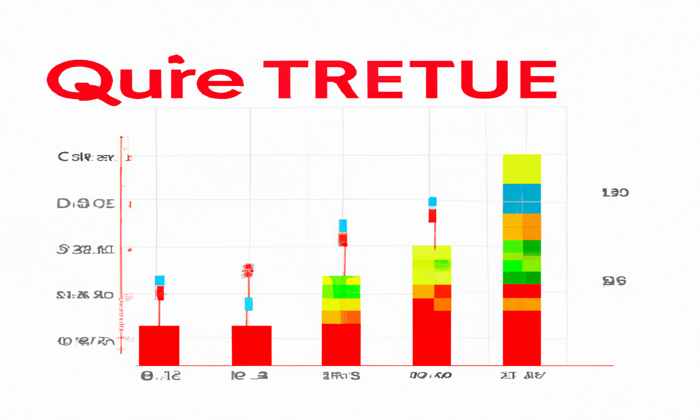Galaxy Digital tokenization is at the forefront of an evolving financial landscape, where traditional equities are transformed into digital assets through blockchain technology. Currently in discussions with the U.S. Securities and Exchange Commission (SEC), Galaxy is exploring the potential for its own shares to be tokenized, which would streamline trading and broaden access within decentralized finance (DeFi) applications. By meeting with the SEC’s crypto task force, the company is positioning itself to comply with regulatory frameworks while pioneering innovations in the crypto markets. This move not only underscores Galaxy’s commitment to modernizing finance but also reflects a growing trend of tokenized equities gaining traction as a viable alternative to conventional investments. As Galaxy prepares to trade on Nasdaq, the implications of tokenization are becoming increasingly significant, promising faster settlements and continuous trading opportunities for a broader audience.
The tokenization of assets, particularly within the realm of cryptocurrency and digital finance, represents a pivotal shift in how we perceive ownership and investment. As companies like Galaxy Digital engage with regulatory bodies such as the SEC, there is a burgeoning interest in converting traditional stocks into digital formats using advanced blockchain technology. This innovative approach to securities opens the door to new financial instruments that enhance liquidity and democratize access to investment opportunities. The broader acceptance of tokenized ventures is not merely a trend but a revolution within decentralized finance, indicating a future where conventional equities may seamlessly coexist with the expanding crypto ecosystem. As such, the conversation around tokenization is not only timely but essential as we navigate this transformative era in finance.
Galaxy Digital Tokenization: A New Era for Equity Trading
Galaxy Digital is at the forefront of transforming how equities are traded through the innovative process of tokenization. By engaging with the U.S. Securities and Exchange Commission (SEC) to tokenize its shares, Galaxy aims to leverage blockchain technology to make its stock more accessible and functional in decentralized finance (DeFi) applications. This initiative could mark a significant milestone in the evolution of crypto markets, allowing investors to trade Galaxy’s stock as digital assets, which can simplify transactions and enhance liquidity in the marketplace.
The implications of tokenizing equities like those of Galaxy Digital extend beyond streamlined trading. By allowing assets to exist as tokenized representations on the blockchain, the company increases transaction speed and minimizes the costs typically associated with traditional stock trading. This could democratize access to equity ownership, providing a broader audience with the opportunity to invest in innovative companies like Galaxy, thus fostering a culture of investment within the growing DeFi ecosystem.
Understanding SEC Regulations Surrounding Tokenized Equities
Navigating the SEC regulations surrounding tokenized equities is crucial for companies looking to enter this pioneering space. The SEC has been actively discussing the need for regulatory frameworks that ensure blockchain technology meets existing securities laws. This scrutiny is partly driven by the explosive growth of tokenized assets, which represents a transformative shift in the investment landscape. As Galaxy Digital engages with the SEC, it becomes imperative for the company and others in the sector to conduct thorough compliance check-ups to assure regulators that tokenized equities do not circumvent legal protections for investors.
This dialogue with the SEC is essential not just for Galaxy but for the entire market of tokenized assets, which could reshape concepts of ownership and security. As companies like Coinbase and Kraken propose their visions for tokenized securities, it highlights an industry-wide movement towards redefining regulatory approaches. A clear regulatory pathway can enhance trust in tokenization among investors, encouraging more traditional finance players to explore blockchain technology and its vast potential for future securities.
The Role of Blockchain Technology in Tokenization
Blockchain technology stands at the heart of the tokenization process, acting as the backbone for securely representing and managing digital assets. For Galaxy Digital, utilizing its in-house digital asset platform for tokenizing equities exemplifies how this technology can facilitate innovations in the securities market. By ensuring transparency and immutability, blockchain not only enhances security for investors but also records all transactions in a decentralized manner, distinctively differing from traditional systems.
The potential benefits of integrating blockchain into equity trading are extensive. Improvements in efficiency, cost reduction, and access to liquidity make tokenization a highly appealing alternative for asset management companies. Galaxy’s approach to tokenizing assets, as seen with items like the historically significant Stradivarius violin, showcases the breadth of applications for blockchain technology in various asset classes, reinforcing its viability as a foundational technology in modern finance.
Decentralized Finance and the Future of Asset Tokenization
Decentralized finance (DeFi) has emerged as a critical player in the financial landscape, and tokenized equities hold the potential to revolutionize traditional lending and trading practices. Galaxy Digital’s initiative to tokenize its shares could enable seamless integration into DeFi applications, allowing shareholders to utilize their holdings in lending platforms and yield farming strategies. This integration not only expands the use cases for equity ownership but also encourages a shift towards more democratized financial services.
The relationship between tokenized equities and DeFi represents a pivotal opportunity for innovation. As more investors seek liquidity and efficiency, tokenized shares can serve as collateral in decentralized lending markets, providing enhanced value and utility to shareholders. The ongoing developments in this space could reshape the traditional finance model, blending it with the audacity of the crypto markets, and indicating a bright future for companies willing to embrace change, like Galaxy Digital.
Galaxy Digital’s Strategic Market Entry and Listing
The strategic decision by Galaxy Digital to commence trading on the Nasdaq marks a significant shift not only for the company but also for the perception of crypto-related businesses in traditional markets. This listing comes after a successful track record in Canada and is indicative of increasing institutional interest in cryptocurrency and tokenized assets. As Galaxy joins the ranks of publicly traded firms, it sets a precedent for how digital asset companies can achieve credibility and momentum within mainstream finance.
By entering the U.S. market through Nasdaq, Galaxy can capitalize on renewed bullish sentiment in the crypto markets. Such a move aligns with a growing public acceptance of digital currencies and assets. It signals a pivotal moment for investors who have traditionally hesitated to engage with crypto due to regulatory ambiguities and market volatility. The listing not only elevates Galaxy’s brand but also serves as a gateway for further investment in tokenized financial products.
The Economic Impact of Tokenization on Asset Liquidity
Tokenization has the power to unlock liquidity in asset markets, significantly enhancing the tradability of equities. By converting traditional shares into digital tokens, Galaxy Digital is poised to create a more dynamic marketplace where shares can be traded continuously without the prolonged settlement times associated with traditional assets. This liquidity enhancement not only benefits the company but also meets the demands of a growing number of investors looking for immediate access to their investments.
Moreover, increased liquidity through tokenized equities can lead to healthier market dynamics. It can reduce price volatility and enhance price discovery, benefiting all market participants. As tokenization becomes mainstream, Galaxy Digital could serve as a prime example of how this economic innovation reshapes investment strategies and enables smoother operations for both retail and institutional investors.
The Future of Tokenized Securities in Crypto Markets
As the crypto markets continue to mature, the future of tokenized securities appears promising. Galaxy Digital’s commitment to tokenizing its shares signifies a pivotal moment and could spur other companies to explore similar paths in seeking public funding and equity ownership. This trend aligns with broader market movements that favor innovations in asset management and ownership structures, challenging traditional paradigms of allocating capital.
The anticipated rise of tokenized securities is expected to invite regulatory clarity and foster an environment where traditional investors feel more secure participating in crypto investments. As more firms like Galaxy Digital enter this space, increased exposure and educational initiatives may ultimately lead to a robust adoption of tokenized assets, providing investors with more options and potentially expanding the financial ecosystem.
Tokenization: Bridging Tradition with Innovation
The innovative approach of tokenization bridges traditional finance’s established systems with the emerging possibilities offered by blockchain technology. By working towards tokenizing its shares, Galaxy Digital exemplifies how established companies can embrace new methods of asset representation, appealing to a tech-savvy generation of investors. This intersection of old and new economic models fosters a more inclusive financial landscape for participants.
This bridge between tradition and innovation could redefine what ownership looks like in the coming years. With the SEC exploring ways to harmonize existing regulations with new technologies, companies leveraging tokenization could potentially thrive. Galaxy Digital’s successful initiatives could serve as case studies to guide others in their quest for regulatory compliance while driving meaningful transformation in the investment sector.
Navigating Challenges in Tokenization and Regulatory Compliance
As promising as the future of tokenization looks, companies like Galaxy Digital must navigate several challenges surrounding regulatory compliance and technological implementation. The intersection of emerging technologies and existing legal frameworks often presents complexities that can discourage innovation. Ongoing discussions with the SEC are crucial for establishing a clear regulatory roadmap, enabling Galaxy to pursue its tokenization goals without running afoul of securities regulations.
For companies delving into tokenized equities, understanding the intricacies of the regulatory environment is essential. Each market may pose unique challenges, and proactive engagement with regulatory bodies can lead to more favorable outcomes. Galaxy Digital’s approach to meeting with the SEC is an enabling step that could create a template for other firms aspiring to tokenize their own securities, fostering a more robust ecosystem in the crypto and financial markets.
Frequently Asked Questions
What is Galaxy Digital tokenization and how does it relate to SEC regulations?
Galaxy Digital tokenization refers to the process of converting traditional equity shares into digital tokens on a blockchain, which is under discussion with the U.S. Securities and Exchange Commission (SEC). This move aims to create a regulatory framework that allows Galaxy’s tokenized equities to comply with existing securities laws, potentially enabling greater accessibility and efficiency in trading.
How can tokenized equities from Galaxy Digital be utilized in decentralized finance?
Tokenized equities from Galaxy Digital can be utilized in decentralized finance (DeFi) applications, allowing them to be traded, leveraged, or used as collateral for loans. This integration with DeFi ecosystems enhances liquidity and provides investors with innovative ways to engage with equity markets through blockchain technology.
What advancements in blockchain technology are influencing Galaxy Digital’s tokenization efforts?
Recent advancements in blockchain technology facilitate the tokenization of equities by enabling secure, transparent, and efficient trading mechanisms. Galaxy Digital’s initiative to tokenize its own shares capitalizes on these improvements, promoting faster settlement times and continuous trading in a regulated environment.
How does Galaxy Digital’s tokenization project contribute to the crypto markets?
Galaxy Digital’s tokenization project could significantly impact the crypto markets by bridging traditional finance with digital assets. By tokenizing equities and potentially attracting institutional investors, this initiative aims to revitalize interest in digital investments and enhance market dynamics.
What are the potential benefits of tokenization for traditional assets like Galaxy Digital’s stocks?
Tokenization can provide various benefits for traditional assets, such as Galaxy Digital’s stocks, including improved liquidity, greater market accessibility for investors, faster transaction settlements, and the ability to engage in new financial products within decentralized finance ecosystems. This opens up innovative pathways for investment.
Can you explain the importance of SEC regulations in Galaxy Digital’s tokenization process?
SEC regulations play a crucial role in Galaxy Digital’s tokenization process as they ensure that the representation of equities as digital tokens adheres to existing securities laws. This regulatory clarity is essential for building investor trust and allowing for broader participation within the financial markets.
What is the significance of Galaxy Digital’s listing on Nasdaq and how does it relate to tokenization?
Galaxy Digital’s upcoming listing on Nasdaq is significant as it represents a new phase for the company and highlights its innovative approach to tokenization. By listing on a major U.S. exchange, Galaxy aims to attract a wider audience for its tokenized equities and demonstrate the merging of traditional finance with blockchain technology.
What innovative examples of tokenization has Galaxy Digital implemented in the past?
An innovative example of tokenization by Galaxy Digital includes the tokenization of a 316-year-old Stradivarius violin to secure a loan. This early application illustrates the potential of tokenization in representing unique assets and showcases Galaxy’s commitment to exploring creative solutions within the financial landscape.
How are other companies approaching the tokenized securities space in comparison to Galaxy Digital?
Other companies like Coinbase and Kraken are exploring tokenized securities in similar ways to Galaxy Digital, proposing frameworks to blend traditional financial instruments with blockchain technology. Their initiatives reflect a growing trend in the market, aiming to innovate the trading of digital assets underlined by regulatory compliance.
What future developments can be expected from Galaxy Digital regarding tokenization and blockchain technology?
As Galaxy Digital progresses with its discussions on tokenization and aligns with SEC regulations, we can expect future developments to include the launch of tokenized equities, the integration with decentralized finance, and ongoing innovations in blockchain technology that will reshape the landscape of traditional finance.
| Key Points |
|---|
| Galaxy Digital is discussing with the SEC about tokenizing shares using its digital asset platform. |
| Tokenizing allows Galaxy’s stock to be used in DeFi applications like trading and lending. |
| Discussions with the SEC’s crypto task force occurred in March regarding blockchain registration. |
| As of March, Galaxy manages $7 billion in assets and is listing on Nasdaq. |
| Tokenization facilitates faster settlement, broader access, and continuous trading of assets. |
| Galaxy previously tokenized a Stradivarius violin for a loan, showing practical applications. |
| The SEC is increasing its interest in tokenization, requiring regulatory frameworks for equities. |
| Other companies like Coinbase and Kraken are also exploring tokenized securities. |
| Galaxy Digital’s new Nasdaq listing represents a significant move in the tokenization landscape. |
Summary
Galaxy Digital tokenization is paving the way for the innovative use of blockchain technology in equities. By engaging with the SEC to tokenize its shares, Galaxy aims to integrate traditional stock into decentralized finance applications, enhancing trading and lending capabilities. With significant assets under management and a newly minted Nasdaq listing, Galaxy Digital is well-positioned to lead in this evolving space. As the SEC continues to explore regulatory frameworks for tokenization, the future looks promising for reshaping financial markets and driving mainstream adoption.
Galaxy Digital tokenization is rapidly gaining traction as the company engages with the U.S. Securities and Exchange Commission (SEC) regarding the possibility of tokenizing its own shares and potentially other equities via its advanced digital asset platform. This strategic move has the potential to transform Galaxy’s stock into a tool for decentralized finance (DeFi) applications such as trading and lending, aligning with the growing trend of tokenized equities in the crypto markets. By leveraging blockchain technology for this initiative, Galaxy aims to enhance the efficiency and accessibility of its assets, a transformation reminiscent of past innovations in various media formats. The SEC’s heightened interest in regulating the tokenization landscape underscores the necessity for a comprehensive framework that adheres to existing regulations while fostering innovation. As Galaxy embarks on this exciting journey, it paves the way for a future where traditional assets are seamlessly integrated into the digital economy, potentially revolutionizing the financial landscape as we know it.
The concept of digitizing assets, particularly by companies like Galaxy Digital, is commencing a significant shift in how equities are managed and traded. As organizations explore the feasibility of creating digital tokens that represent shares, they stand to benefit from the efficiencies of blockchain technology, which promises seamless transactions and enhanced liquidity. This evolving landscape echoes the transformative voyages experienced in other industries, demonstrating the growing importance of complying with SEC regulations in light of these changes. By converting traditional assets into digital formats, firms can participate more fully in decentralized finance, opening up new avenues for investments in the crypto markets. The journey toward widespread acceptance of tokenization represents a critical juncture as businesses adapt to the digital world’s demands.














